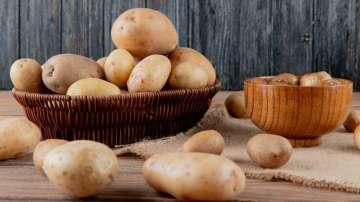Potatoes are one of the most popular vegetables consumed in India. One of the few food items that people cut down from their diet after being screened for diabetes is potatoes. The starchy vegetable, which is devoured all around the globe and is a staple food in many cultures, suddenly becomes unhealthy.
When a person has diabetes, they may not be able to absorb all of the carbohydrates that they consume, causing higher-than-desired blood sugar levels. For those without diabetes, when blood sugar levels rise, the pancreas is signaled to release insulin, which helps the cells in the body take up the blood sugar to use it for energy.
Potatoes can absolutely be part of a diabetes-friendly eating pattern. But it's important to note how the potatoes are prepared and the portion you consume, especially if you have diabetes. To control the carb intake, always prefer boiled, grilled and slightly sauteed forms of potatoes. One can also cook potatoes with other fiber-rich vegetables like beans. This will help to slow down the digestion process and will also prevent the spike in blood sugar levels. Potatoes have a medium to high Glycemic Index (GI). But then GI alone does not provide a clear picture of food’s effect on blood sugar levels. Portion control also has a crucial role to play.
Mary Ellen Phipps, M.P.H., RDN, LD, and author of The Easy Diabetes Cookbook, shared. "We just need to think of them a bit differently than prior to diagnosis. Potatoes by themselves offer vitamins, minerals, and some fiber... but not much in the way of protein or fat." So, for those managing diabetes who want to enjoy potatoes, she suggests pairing them with a protein source like meat, fish or legumes and a healthy fat, like avocado or olive oil.
A healthy diet along with regular exercise and no stress can reduce the risk of diabetes.
Disclaimer: Tips and suggestions mentioned in the article are for general information purpose only and should not be taken as professional medical advice. Please consult a doctor before starting any fitness regime or medical advice.
Also Read: What is Tinnitus? Know about the symptoms, causes, cure of this rare hearing condition
Also Read: Winter smog can clog your lungs; know the tips to protect yourself from air pollution

